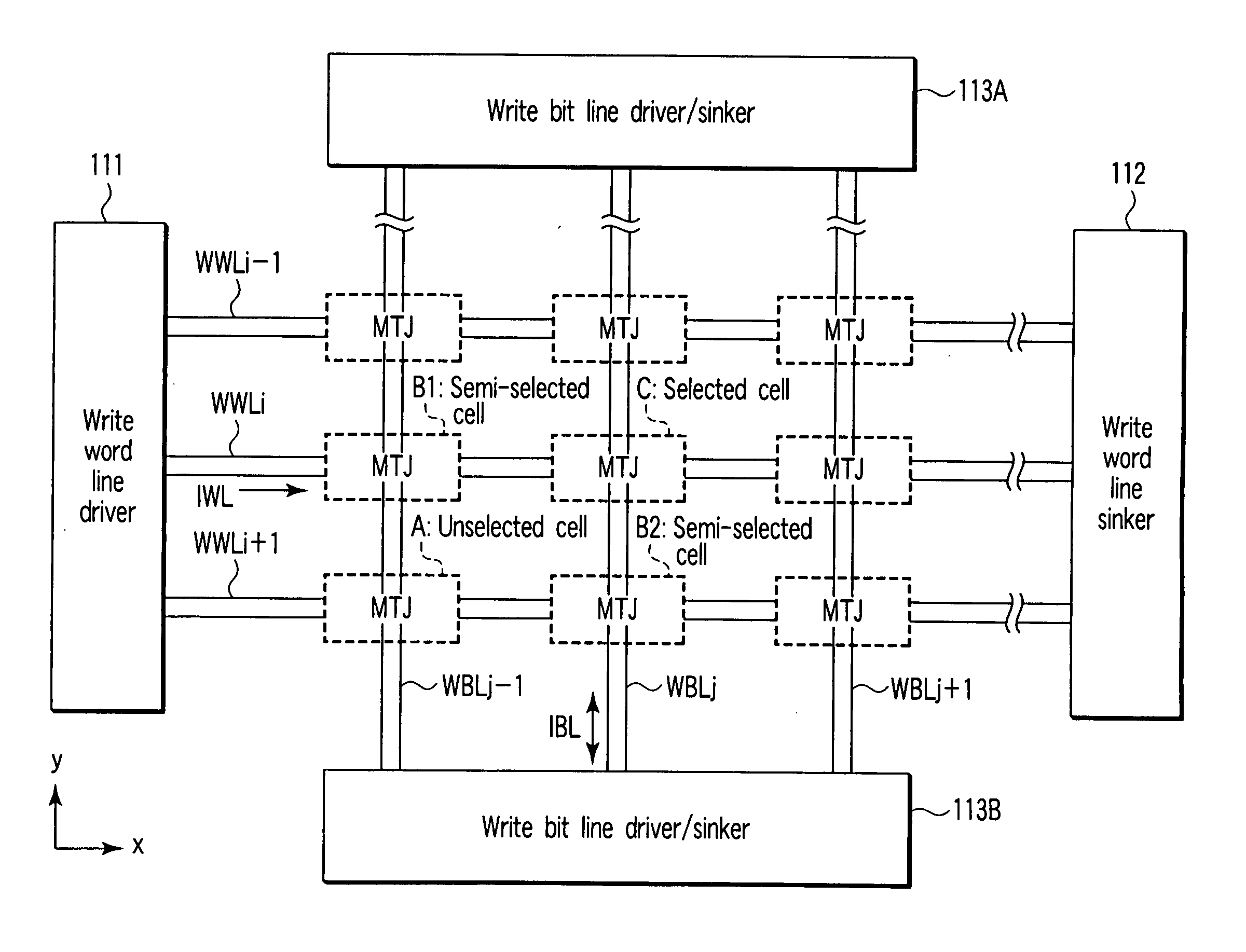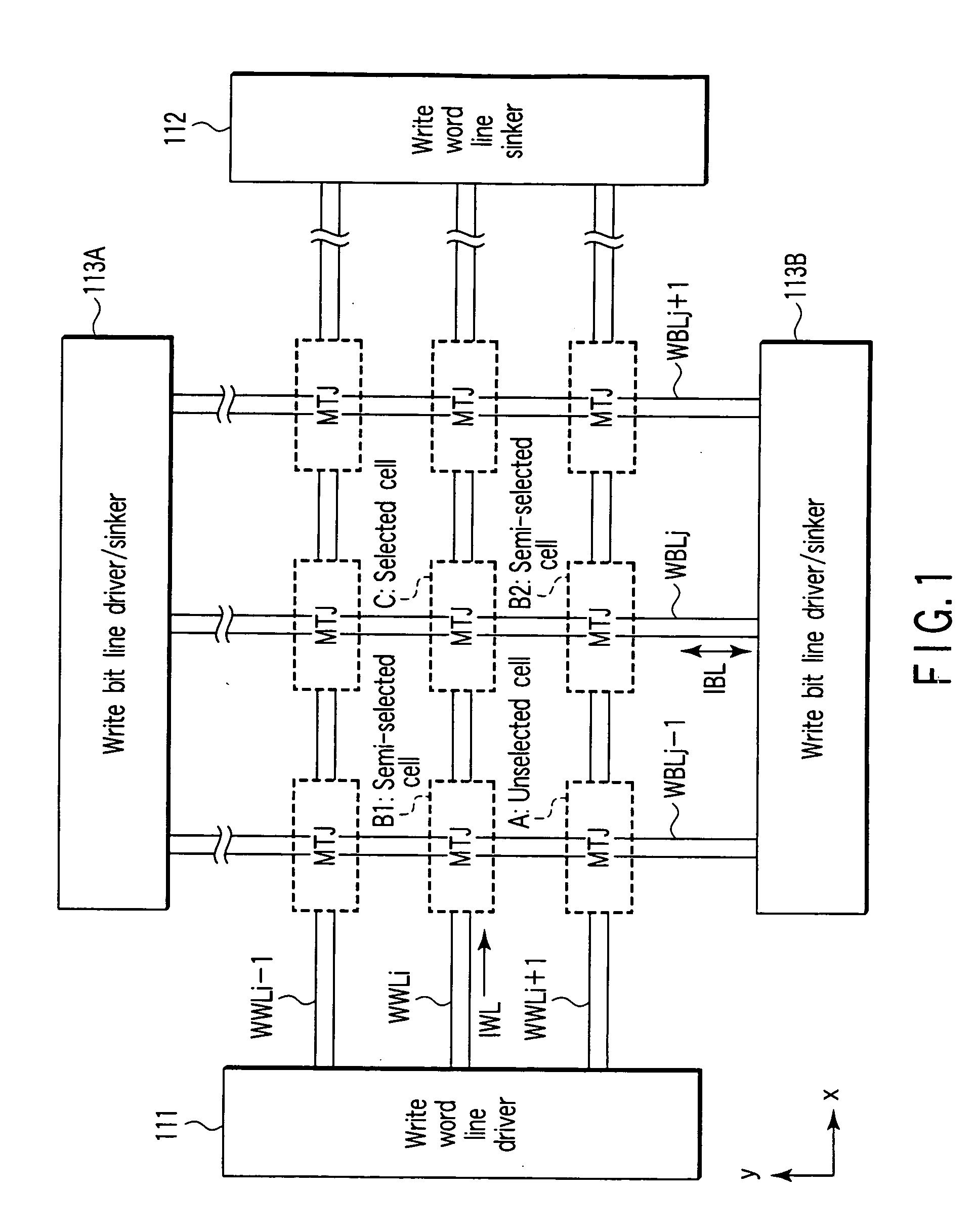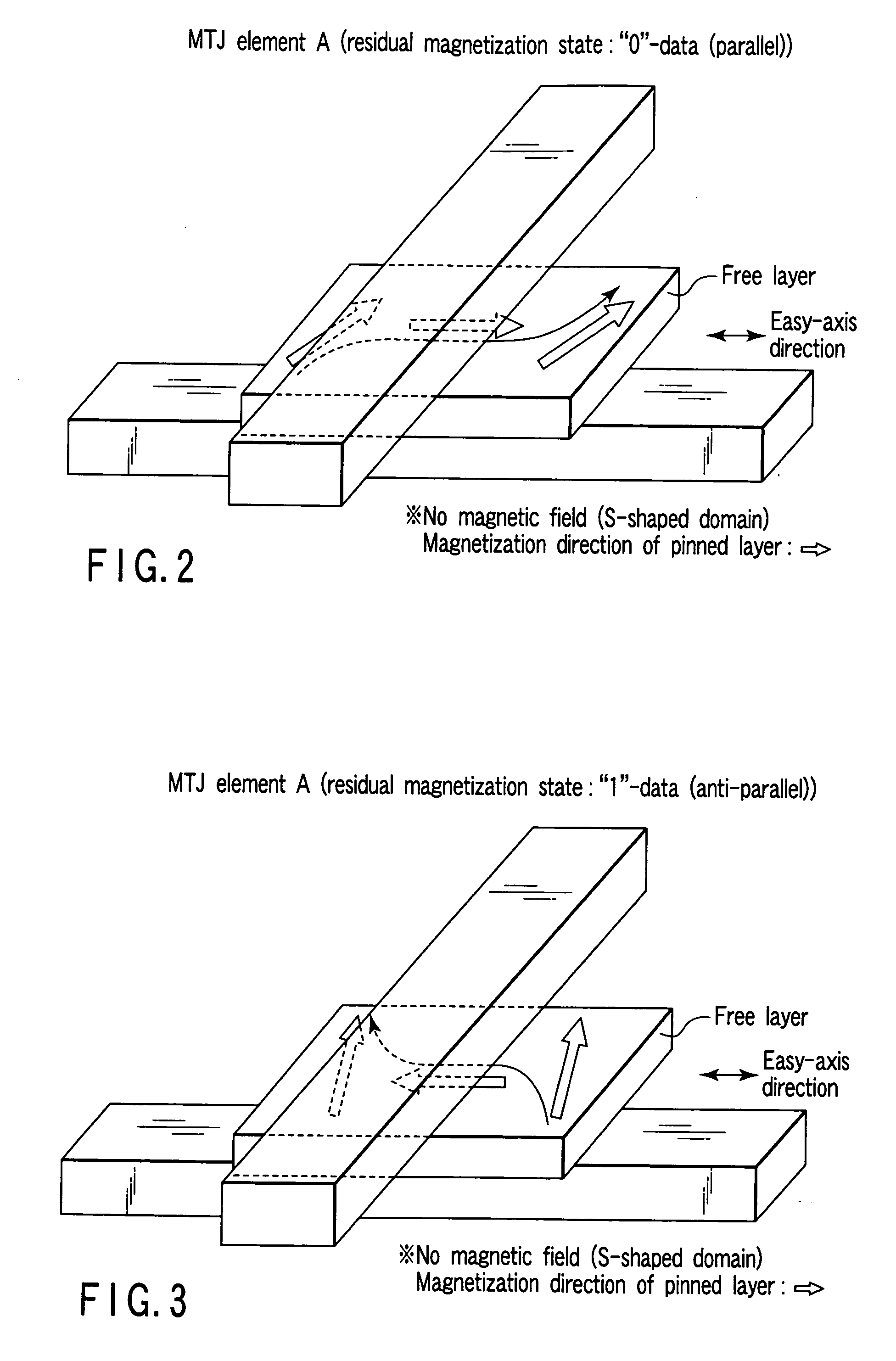Magnetoresistive element
a technology of magnetoresistive elements and switching mechanisms, which is applied in the direction of thin material processing, digital storage, instruments, etc., can solve the problems of thermal stability degradation, unfavorable increase in power consumption, and inability to adjust the magnetic memory element's magnetic layer size,
- Summary
- Abstract
- Description
- Claims
- Application Information
AI Technical Summary
Benefits of technology
Problems solved by technology
Method used
Image
Examples
embodiment
2. EMBODIMENT
[0166] A most preferred embodiment will be described below.
(1) Magnetization State Switching Mechanism
[0167]FIG. 1 shows main parts of a magnetic random access memory to which a magnetization state switching mechanism according to the embodiment of the present invention is applied.
[0168] MTJ elements MTJ are arranged in an array. The shape of the MTJ element MTJ is not particularly limited in executing the magnetization state switching mechanism according to the embodiment of the present invention. This is because the magnetic structure that is easy or hard to cause flux reversal can be controlled by the manner a magnetic field is applied to the magnetoresistive element, and the structure, material, layer thickness, shape, and magnetic anisotropy of the magnetoresistive element.
[0169] Write word lines WWLi−1, WWLi, and WWLi+1 running in the x direction are arranged under the MTJ elements MTJ. A write word line driver 111 is connected to one end of each of the write...
example 5
[0458]FIG. 91 is a plan view showing an MTJ element according to Example 5 of the present invention. The MTJ element according to Example 5 will be described below.
[0459] As shown in FIG. 91, in Example 5, let W be the maximum width of a long portion 10a in the direction of axis of hard magnetization, and A be the maximum width of each of projecting portions 10b and 10c in the direction of axis of hard magnetization. Then, A / W is defined. In this example, an MTJ element 10 having an shape S1 is used.
[0460]FIG. 92 shows the measurement result of the A / W dependence of a magnetic field Hc in the MTJ element according to Example 5 of the present invention. Shapes when A / W=0, 1 / 7, and ½ are illustrated for reference purposes. Hc is normalized by an easy-axis reversal field HcO of the shape with A / W= 1 / 7. The A / W dependence of the magnetic field Hc will be described below.
[0461] As shown in FIG. 92, Hc abruptly decreases near A / W=⅛. However, when A / W>⅛, Hc rarely changes. Hence, when t...
example 6
[0465]FIG. 93 is a plan view showing an MTJ element according to Example 6 of the present invention. The MTJ element according to Example 6 will be described below.
[0466] As shown in FIG. 93, in Example 6, when each of side surfaces f1 and f2 at the easy-axis direction ends of a long portion 10a is formed from a line L2, like the shape S1, an angle φ made by a line L1 in the direction of axis of easy magnetization and the side surfaces f1 and f2 (line L2) is defined.
[0467]FIG. 94A shows the measurement result of the asteroid characteristic of the MTJ element according to Example 6 of the present invention. FIG. 94B shows the measurement result of the φ dependence of a magnetic field Hc in the MTJ element according to Example 6 of the present invention. FIG. 94C shows the φ dependence of the first and second quadrants of the MTJ element according to Example 6 of the present invention. Hc is normalized by Hc of a shape with φ=75° The asteroid characteristic and the φ dependence of H...
PUM
 Login to View More
Login to View More Abstract
Description
Claims
Application Information
 Login to View More
Login to View More - R&D
- Intellectual Property
- Life Sciences
- Materials
- Tech Scout
- Unparalleled Data Quality
- Higher Quality Content
- 60% Fewer Hallucinations
Browse by: Latest US Patents, China's latest patents, Technical Efficacy Thesaurus, Application Domain, Technology Topic, Popular Technical Reports.
© 2025 PatSnap. All rights reserved.Legal|Privacy policy|Modern Slavery Act Transparency Statement|Sitemap|About US| Contact US: help@patsnap.com



